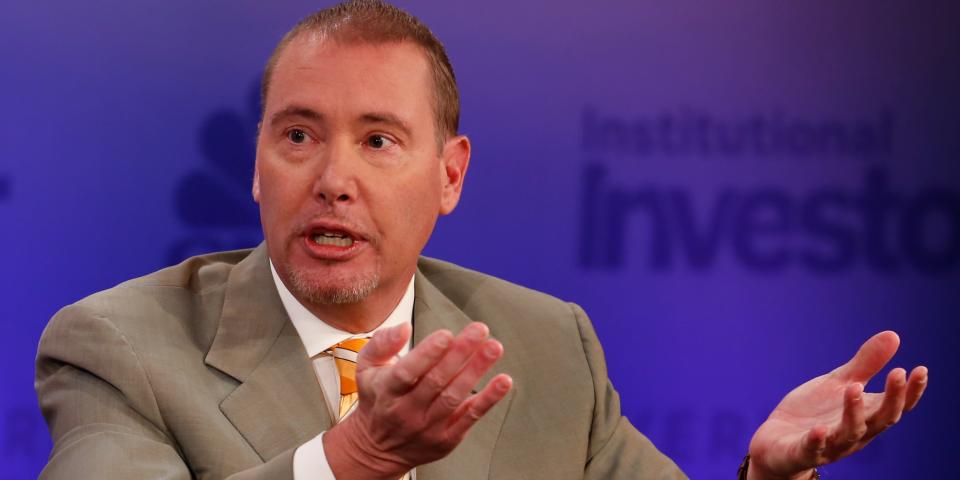
-
The 10-year Treasury yield plunged below 4% on Thursday after the Fed signaled rate cuts in 2024.
-
That represents a “fire alarm” for Jeffrey Gundlach, who sees a recession coming next year.
-
The bond investor expects the 10-year rate to fall into the “low threes” sometime in 2024.
The 10-year yield’s plummet below 4% on Thursday triggered an alarm that billionaire bond investor Jeffrey Gundlach warned about earlier.
After the Federal Reserve signaled Wednesday that it may be cut interest rates three times next year, the 10-year Treasury rate tumbled more than 17 basis points to just above 4%.
“There’s something about if you break below four on the 10-year that I think it almost sounds like a fire alarm going off relative to the economy,” the DoubleLine founder said in a Wednesday CNBC interview.
Since his remarks, the rate has since fallen nearly 13 basis points, standing at 3.9% as of Thursday afternoon.
Meanwhile, he expects the 10-year to fall much further into the “low threes” in 2024, as he sees a recession setting in sometime next year.
As the economy slows, Gundlach predicted the Fed would slash the fed funds rate by 200 basis points, far more than the 75 basis points Fed officials telegraphed in their “dot plot” of projections for 2024.
Once the 4% threshold is ruptured, investors should expect the correlation between strong bonds and strong equities to come apart, he added.
For 2024, Gundlach advocated that investors stick to long-dated bonds, suggesting to switch from short-dated T-bills to long-duration Treasurys once a recession hits.
“I think the logic that people have that money market bloat is going to go into the stock market is wrong. I think it’s unlikely for investors to go from risk-free 6 month T-bills to the ‘Magnificent Seven’ at massive P/Es and all-time highs on the Dow Jones adjusters,” he said. “I think they’re much more likely to go from their mountain of cash in T-bills into bonds.”
Read the original article on Business Insider
Source: finance.yahoo.com
